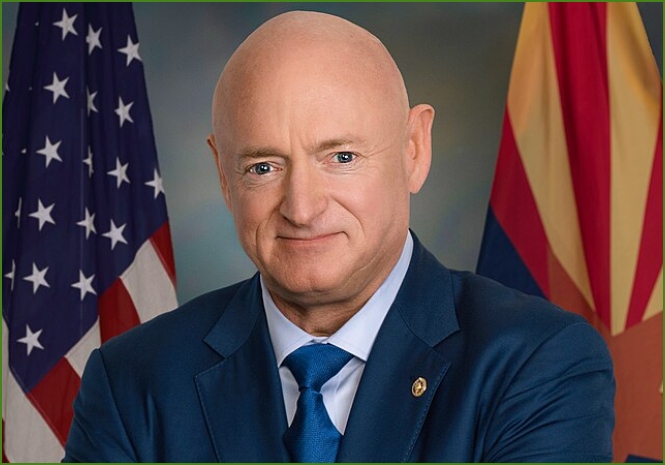A bipartisan group of U.S. military veterans from every branch is publicly defending Senator Mark Kelly, a former Navy combat pilot and astronaut, after the Pentagon opened an investigation into whether he encouraged insubordination by reminding service members that their oath is to the Constitution — not to any president.
The veterans, speaking in a video that quickly spread across social media on Thursday, November 27, 2025, criticized both President Donald Trump and Defense Secretary Pete Hegseth for what they called an effort to “intimidate” Kelly and politicize the military.
“I want to talk about Senator Mark Kelly for a minute,” said Corey Hargraves, a former Army Staff Sergeant. “A former Navy pilot, a combat vet, an astronaut, a husband, and a patriot… Right now, our government is threatening to court-martial him for a video that reminded service members to uphold their oaths.”
The Pentagon’s Investigation
The controversy began after Kelly and five Democratic lawmakers released a video urging troops to reject unlawful orders — a message historically consistent with military law and long-established norms governing command authority. But Pentagon officials launched an investigation under 18 U.S.C. § 2387, a statute concerning efforts to influence or encourage insubordination.
The probe creates the unusual possibility that a sitting U.S. senator could be recalled to active duty and subjected to a court-martial, an option technically available for retired officers.
Kelly called the investigation “politically motivated intimidation” and said he would “never apologize for reminding service members what every American should know — that their loyalty belongs to the Constitution.”
Veterans Speak Out

The video released by the veterans features former service members identifying themselves by rank, branch, and years of duty — an intentional assertion of credibility amid a deeply polarized national moment.
“This is a targeted attack from the executive branch and from the Department of Defense against a fellow veteran and an honorable American,” said one retired Naval Aviator.
Another veteran, Christopher Goldsmith, a former Army sergeant, warned that the government “is trying to influence our military to serve the president, not the Constitution, and not the American people.”
Others expressed concern that politicizing military obedience undermines a foundational principle of U.S. democracy.
“America’s military is strong because it’s professional, apolitical, and nonpartisan,” one speaker said. “Undermining that tears at the very fabric of our democracy.”
Trump and Hegseth Escalate the Conflict

US Senator Mark Kelly (D-AZ). Image by: John Klemmer, United States Senate Photographic Studio. Public domain. Wikimedia Commons
Trump has accused Kelly of “sedition,” while Hegseth called his message “a threat to military discipline.”
Legal experts, however, note that reminding troops of their duty to refuse unlawful orders is not only permissible but required under the Uniform Code of Military Justice.
The White House has not clarified which specific conduct it believes violates the statute.
A Broader Civil–Military Flashpoint
The clash comes as civil–military relations have become a recurring point of tension in Washington. Kelly, who flew 39 combat missions in Operation Desert Storm, has been one of the Senate’s most outspoken advocates for maintaining the military’s political neutrality.
Veterans in the video argued that punishing him for reiterating constitutional principles would set a dangerous precedent.
“To every service member,” one veteran concluded. “You and we all took an oath — not to serve a king or a tyrant, but to defend the Constitution. Don’t give up the ship.”
What Happens Next
The Pentagon has not indicated how long the investigation will take or whether charges are likely. Kelly has said he will continue performing his duties in the Senate.
For now, the nation’s civil–military tensions — and the political reverberations around them — appear far from over.
